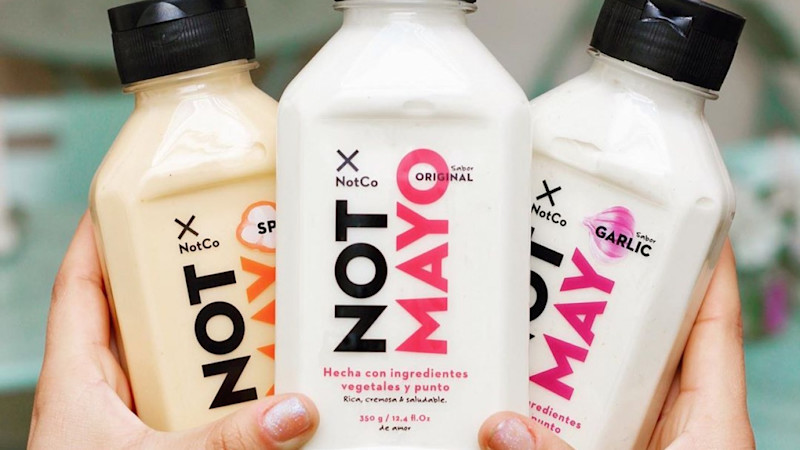- Iterate
- Meet The Team
- LatAm’s Top-Funded Companies of 2020
LatAm’s Top-Funded Companies of 2020
Table of contents
Latin America has been one of the world’s most affected regions by COVID-19 and the consequences of such drastic inequality have become more evident than ever.

Fintech
Referring to companies that use technology to improve and automate the delivery and use of financial services. The startups that raised the most capital this year are betting on digital banking and payment platforms.
- Neon raised a $300M Series C in September 2020 and part of the funding was used to acquire Consignamais+, a payroll lender in Brazil. Operating mainly as a digital bank, the Brazilian neobank offers credit cards, personal loans and investment products among other services via its 100% digital platform. Neon is competing directly with Nubank, who also raised $300M in June of this year.
- dlocal is an all-in-one cross border payment platform that connects global merchants to emerging markets. The platform was designed to support mass online payments, send payouts, and settle funds globally in places like Argentina, Panama, China, Bangladesh, Cameroon, Kenya, and others. The Uruguayan startup was created as a spinoff of AstroPay in 2016 and raised $200M in September. The capital will be used towards expanding presence in the regions they already serve and specifically creating partnerships to help them achieve this.
- Conductor is the leading payments and banking as a service platform in Latin America. With its cloud native and open API platform, the startup powers leading fintechs, banks, retailers, and enterprises across the region, enabling them to launch and scale innovative digital accounts and card programs. They serve over 85 million accounts and process upwards of $20B in payment volume across the region. Conductor raised a $150M private equity round in October.
Proptech
*These startups are offering innovative technology products and new business models in the real estate market. From apartment-hotel style offerings and real estate loans to proprietary pricing algorithms to sell homes more quickly and efficiently, these companies are giving Latin Americans options when it comes to owning properties. *
- Loft, the rapidly growing Brazilian proptech, raised $175M in a Series C round that included two time investor Andreessen Horowitz. The funding round was a crucial milestone for the startup, helping it achieve unicorn valuation in under 16 months since inception in August 2018. The real estate platform simplifies the sale and purchase of property by leveraging a searchable database where users can find, browse, and purchase properties based on feedback and reviews from registered customers resulting in a transparent and straightforward experience.
- Casai is a Mexican hospitality company that provides travelers with premium accommodations that boast exquisite interior design and smart home technology to meet traveler’s needs. The Sonder style company also received investment from Andreessen Horowitz, Airbnb early investors, to help them complete a $48M funding round.
- Pontte provides loans for all Real Estate related needs including mortgages, home equity, refinancing, and business loans, among others. The startup is creating a bridge (pontte in Portuguese) between helping people carry out life projects, such as purchasing a house, and positively impacting people’s lives. The company created loans with long term property guarantee and flexible installments where users can have access to grace periods for payments in case something happens and they can’t submit a payment on time. The entire process is conducted online and the user controls the entire payment journey for their property. Pontte raised $29M that will be used to provide more mortgage loans and strengthen the team.

Food: Delivery, Distribution and Foodtech
Startups in the food industry are composed of entrepreneurs innovating on the products, marketing, distribution, or business model fronts.
- Rappi, the delivery giant originally from Colombia that now has presence all over LatAm, raised an additional $300M in 2020 after having raised a historic $1B from SoftBank in early 2019, catapulting it to unicorn valuation. The consumer tech company was founded in 2015 to exclusively deliver food and has now expanded its services to include pharmacies, on demand ATM’s, travel services, online gambling, and insurance among other offerings. The app has an ambitious goal of having over 70% of people’s mobile interaction go through their platform. In order to do this, they have dipped their toes in the fintech world and will soon be launching RappiBank.
- NotCo’s mission is to take animals out of food production while never, ever compromising on taste. When the founders understood that removing animals from the production process of food could help save the planet, they created an algorithm that could learn thousands of combinations of plants to replicate animal products that were sustainable and delicious. As part of their product portfolio, the company produces NotMilk, NotIceCream, NotMayo, and NotMeat, which will soon be competing with Beyond Meat. The Chilean foodtech received an $85M funding round to take products into the U.S. market.
- RobinFood is Latin America’s largest cloud restaurant company. Its business model merges cloud kitchens with traditional restaurants while leveraging proprietary technology to provide patrons access to high quality home made food. In early 2020, RobinFood launched the first contactless restaurant with no human to human interaction in Latin America. The startup now has over 50 cloud restaurants in LatAm, more than 100 brand-locations in the region, and recently raised $36M that will be invested towards reaching its 1,000 store goal in the next five years.

Mobility/ Fleet Management
*The most funded mobility startups are all coincidentally from Brazil. They are tackling diverse issues that include simplifying car rentals/ ownership, reducing unused cargo space in trucks and encouraging bicycle use as first and last mile transportation. *
- Vai Car is a Brazilian car rental company that raised $85M in early 2020. The company's platform provides cars along with valet services, insurance, unlimited mileage, round-the-clock roadside assistance, and regular check-ups, enabling users to experience the freedom of owning a car without any of the obligations.
- CargoX is a technology freight broker founded in 2013 with the “objective of rewriting the culture of cargo transportation in Brazil.” The logtech operates as a marketplace connecting small fleet owners and carriers looking to fill excess cargo capacity with shippers looking for easy and efficient ways to ship products. The company has connected over 10,000 shippers with 1.4 million trucks, helping to greatly reduce CO2 emissions generated by empty trucks on the road. CargoX raised $80M in 2020, bringing its total funding of $258M and is growing 20% per month, with many speculating it will soon become the next Brazilian unicorn.
- Tembici became the leading micro mobility player in Latin America by providing bicycles as first and last mile transportation solutions to commuters. The bike sharing startup from Brazil raised $47M in a Series B funding in an effort to expand presence in the country. The company also develops infrastructure projects and space management services for bicycle parking.
E- Commerce/ Growth
*In 2020 Latin America experienced the equivalent of five years of growth in e-commerce during the time there was a stay in place order; around six months across the region. Startups in the sector are providing data, tools and the necessary platforms to make the shift from brick and mortar to e-commerce. *
- Olist operates a tool that connects merchants to the main Brazilian marketplaces. The startup, which raised $58M in November 2020, developed a platform for shopkeepers to register their products to be sold at the Olist store. The startup has a short term goal of reaching 100,000 sellers subscribed to their platform.
- Nuvemshop provides entrepreneurs and SMBs the necessary tools to set up, manage, and promote their online business easily from any device. The startup offers a complete suite of tools including payments, shipping, inventory management, and marketing that enables users to have a functional online presence. According to Santiago Sosa, Nuvemshop’s co-founder and CEO, their “purpose is to reduce the barriers of entrepreneurship to zero.” The company’s most recent funding round totals $30M; they currently work with more than 60,000 merchants and are growing 500% year over year.
- Cortex is Brazil’s leading growth intelligence platform having raised $30M in June in a Series B round that includes avid LatAm investor SoftBank. The startup is a data analytics platform that allows users to generate reports on-demand, allowing them to make the best marketing and sales decisions based on key insights from their proprietary platform.
--
The Org is a professional community where transparent companies can show off their team to the world. Join your company here to add yourself to the org chart!

